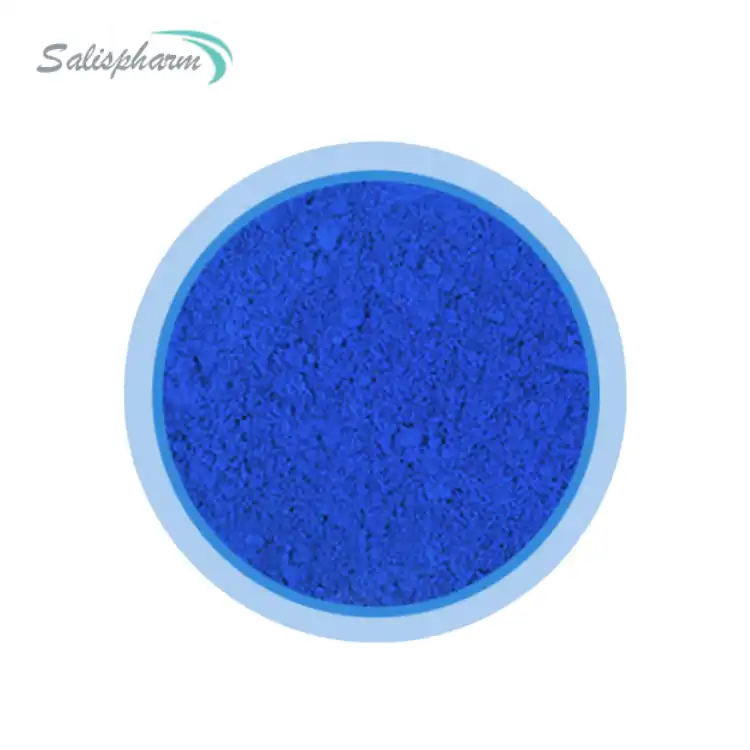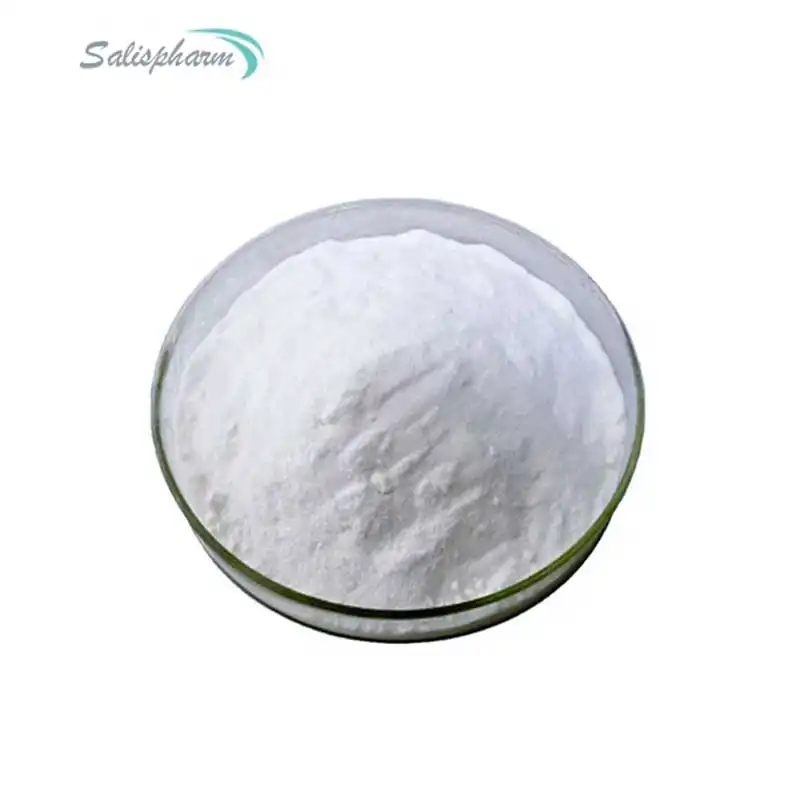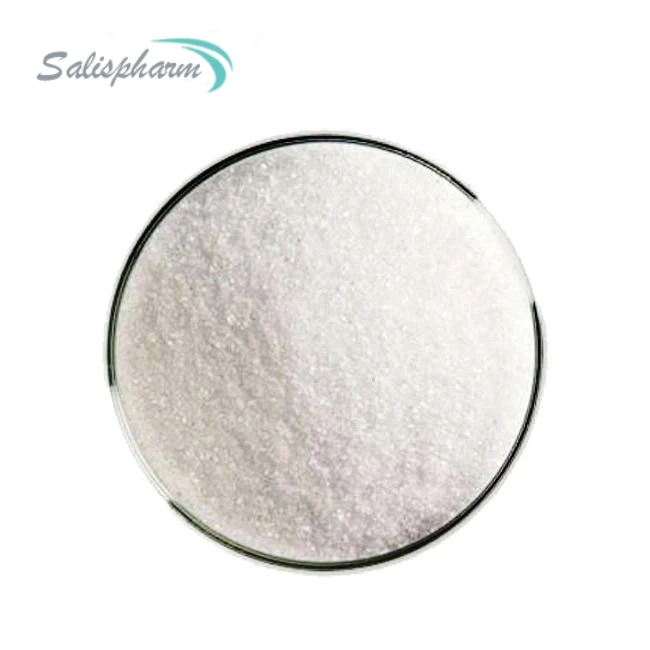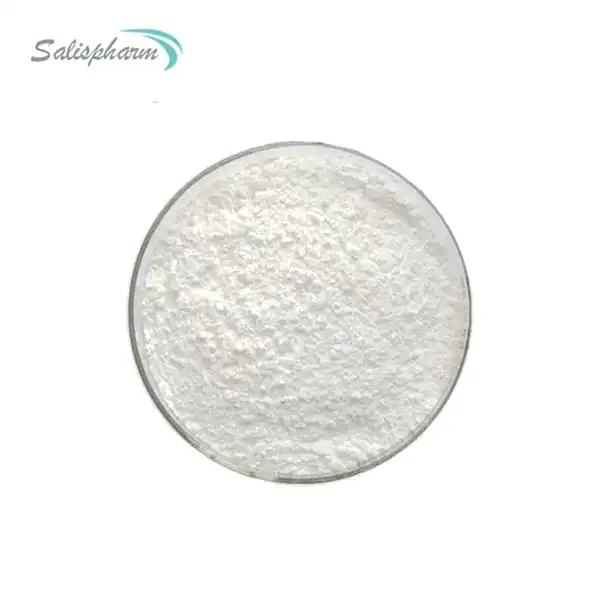Analgin, also known as metamizole or dipyrone, is a widely used pain reliever and fever reducer in many parts of the world. While it's known for its effectiveness in managing various types of pain, many people wonder about its side effects, particularly its potential to cause drowsiness. In this article, we'll explore the relationship between analgin and sleepiness, as well as address some common questions about this medication.
What is Analgin powder used for?
Analgin powder, a popular form of the medication, is primarily used for its analgesic and antipyretic properties. It's commonly prescribed for various conditions and symptoms:
1. Pain management: Analgin is effective in treating different types of pain, including headaches, migraines, dental pain, menstrual cramps, and post-operative pain. Its pain-relieving effects are attributed to its ability to inhibit prostaglandin synthesis, which are compounds involved in pain signaling.
2. Fever reduction: As an antipyretic, analgin helps lower body temperature in cases of fever. It's often used to manage fever associated with various illnesses, including viral infections and flu-like symptoms.
3. Anti-inflammatory effects: While not as potent as some other non-steroidal anti-inflammatory drugs (NSAIDs), analgin does possess some anti-inflammatory properties. This makes it useful in treating conditions that involve inflammation, such as certain types of arthritis or muscle sprains.
4. Spasm relief: Analgin has spasmolytic properties, meaning it can help relieve muscle spasms. This makes it particularly useful in treating conditions like renal colic or biliary colic, where smooth muscle spasms cause severe pain.
The powder form of analgin offers several advantages. It can be easily dissolved in water or other liquids, making it convenient for those who have difficulty swallowing tablets. The powder form also allows for more flexible dosing, as the amount can be easily adjusted based on individual needs.
It's important to note that while analgin is widely used in many countries, its availability is restricted or banned in others, including the United States, due to concerns about rare but serious side effects. Always consult with a healthcare professional before using analgin or any other medication.
How long does Analgin take to work?
The onset of action for analgin can vary depending on several factors, including the form of administration, the individual's metabolism, and the specific condition being treated. Here's a general timeline:
1. Oral administration: When taken orally, either as a powder dissolved in liquid or in tablet form, Analgin Powder typically starts to work within 30 minutes to an hour. Peak plasma concentrations are usually reached within 1-2 hours after ingestion.
2. Intramuscular injection: If administered via intramuscular injection, the onset of action is faster, usually within 20-30 minutes.
3. Intravenous administration: For rapid pain relief in hospital settings, analgin may be given intravenously. In this case, the effect can be almost immediate, with pain relief often experienced within minutes.
The duration of analgin's effects can last anywhere from 4 to 6 hours, though this can vary based on individual factors and the specific condition being treated.
It's worth noting that while analgin can provide quick relief for acute pain and fever, its effectiveness for chronic conditions may take longer to manifest. In cases of chronic pain or inflammation, it may take several days of regular use before the full therapeutic effects are noticed.
Factors affecting the speed of action:
1. Dosage: Higher doses may lead to faster onset of action, but it's crucial to follow prescribed dosages to avoid potential side effects.
2. Food intake: Taking analgin with food can delay its absorption and onset of action slightly, but may help reduce the risk of stomach irritation.
3. Individual metabolism: Some people may metabolize the drug more quickly or slowly than others, affecting both the onset and duration of action.
4. Severity of symptoms: More severe pain or higher fever may require more time for noticeable relief.
5. Concurrent medications: Other medications taken alongside analgin may interact and affect its absorption or metabolism.
While analgin is known for its relatively quick onset of action, it's important to remember that it should be used responsibly and under medical supervision. If pain or fever persists or worsens despite using Analgin Powder, it's essential to consult a healthcare provider for further evaluation and treatment.
Can Analgin cause drowsiness?
The question of whether analgin causes drowsiness is a common concern among users. While drowsiness is not listed as one of the primary side effects of analgin, some individuals may experience a sense of fatigue or sleepiness after taking the medication. Let's explore this topic in more detail:
1. Direct effects on drowsiness:
Unlike some pain medications, such as opioids or certain muscle relaxants, analgin is not generally classified as a sedative. Its primary mechanism of action involves inhibiting prostaglandin synthesis and modulating pain pathways, rather than directly affecting the central nervous system in a way that typically causes drowsiness.
2. Indirect effects on sleepiness:
While analgin may not directly cause drowsiness, it can indirectly contribute to a feeling of sleepiness in some individuals:
a. Pain relief: By effectively reducing pain, analgin can alleviate a significant source of stress and discomfort that may have been keeping a person awake. As pain subsides, the body may naturally relax, potentially leading to a sense of drowsiness or improved sleep quality.
b. Fever reduction: If a person has been experiencing fever, the antipyretic effects of analgin can help lower body temperature. As the fever breaks, it's common for individuals to feel a sense of relief and fatigue, which might be interpreted as drowsiness.
c. Individual sensitivity: Some people may be more sensitive to the effects of medications in general. While not a common side effect, a small subset of users might experience mild sedation or drowsiness as an individual response to analgin.
3. Factors influencing drowsiness:
Several factors can contribute to feeling sleepy after taking analgin, even if the medication itself isn't directly causing drowsiness:
a. Underlying condition: The condition for which analgin is being taken (e.g., severe pain, fever, or inflammation) can be physically and mentally exhausting. As symptoms improve, the body's natural response might be to rest and recover.
b. Time of day: If analgin is taken in the evening or at night, any perceived drowsiness might be due to the natural circadian rhythm rather than a direct effect of the medication.
c. Dehydration: Pain and fever can sometimes lead to dehydration, which can cause fatigue. As Analgin Powder helps alleviate these symptoms, rehydrating may lead to a temporary sense of relaxation that could be mistaken for medication-induced drowsiness.
d. Combination with other medications: If analgin is taken in combination with other drugs that have sedative properties, the overall effect might include drowsiness.
4. Precautions and considerations:
While analgin is not typically associated with significant drowsiness, it's always important to exercise caution:
a. First-time use: When taking analgin for the first time, it's advisable to assess how your body responds before engaging in activities that require full alertness, such as driving or operating machinery.
b. Individual variations: If you consistently experience drowsiness after taking analgin, consult with your healthcare provider. They may adjust the dosage or recommend alternative pain management strategies.
c. Alcohol interaction: Combining analgin with alcohol can potentially increase the risk of drowsiness and other side effects. It's generally advisable to avoid alcohol consumption while taking any medication.
d. Monitoring other side effects: While focusing on potential drowsiness, it's crucial to be aware of other possible side effects of analgin, such as allergic reactions, gastrointestinal issues, or changes in blood cell counts. Any concerning symptoms should be reported to a healthcare professional promptly.
In conclusion, while analgin is not primarily known for causing drowsiness, individual responses can vary. The perception of sleepiness after taking analgin may be due to a combination of factors, including the relief of pain or fever, the body's natural response to healing, and individual sensitivity to medications. As with any medication, it's essential to use Analgin Powder as directed by a healthcare provider and to be attentive to how your body responds. If drowsiness or any other side effect becomes concerning, don't hesitate to seek medical advice for personalized guidance on pain management and medication use.
If you are also interested in this product and want to know more product details, or want to know about other related products, please feel free to contact iceyqiang@aliyun.com.
References:
1. Nikolova, I., Tencheva, J., Voinikov, J., Petkova, V., Benbasat, N., & Danchev, N. (2012). Metamizole: A Review Profile of a Well-Known "Forgotten" Drug. Part I: Pharmaceutical and Nonclinical Profile. Biotechnology & Biotechnological Equipment, 26(6), 3329-3337.
2. Jasiecka, A., Maślanka, T., & Jaroszewski, J. J. (2014). Pharmacological characteristics of metamizole. Polish Journal of Veterinary Sciences, 17(1), 207-214.
3. Ramiro, M. G., Guix, F. X., Miñana, M. D., & Grisolía, S. (1988). Metabolism of metamizole in hepatocytes isolated from phenobarbital-treated mice. European Journal of Drug Metabolism and Pharmacokinetics, 13(2), 131-136.
4. Sánchez, S., Alarcón de la Lastra, C., Ortiz, P., Motilva, V., & Martín, M. J. (2002). Gastrointestinal tolerability of metamizol, acetaminophen, and diclofenac in subchronic treatment in rats. Digestive Diseases and Sciences, 47(12), 2791-2798.
5. Blendinger, K., & Boehmer, R. (2014). Metamizole - an old drug in new clothes. Veterinary Focus, 24(2), 23-30.
6. Rogosch, T., Sinning, C., Podlewski, A., Watzer, B., Schlosburg, J., Lichtman, A. H., ... & Nüsing, R. M. (2012). Novel bioactive metabolites of dipyrone (metamizol). Bioorganic & Medicinal Chemistry, 20(1), 101-107.
7. Sauzem, P. D., Sant'Anna, G. S., Machado, P., Duarte, M. M., Ferreira, J., Mello, C. F., ... & Bonacorso, H. G. (2009). Effect of 5-trifluoromethyl-4,5-dihydro-1H-pyrazoles on chronic inflammatory pain model in rats. European Journal of Pharmacology, 616(1-3), 91-100.
8. Ergün, H., Frattarelli, D. A., & Aranda, J. V. (2004). Characterization of the role of physicochemical factors on the hydrolysis of dipyrone. Journal of Pharmaceutical and Biomedical Analysis, 35(3), 479-487.
9. Vázquez, E., Hernández, N., Escobar, W., & Vanegas, H. (2005). Antinociception induced by intravenous dipyrone (metamizol) upon dorsal horn neurons: involvement of endogenous opioids at the periaqueductal gray matter, the nucleus raphe magnus, and the spinal cord in rats. Brain Research, 1048(1-2), 211-217.
10. Brogden, R. N. (1986). Pyrazolone derivatives. Drugs, 32(4), 60-70.









